- Home
- Jane Arbor
Dear Intruder
Dear Intruder Read online
DEAR INTRUDER
Jane Arbor
What would you do if, coming to take possession of a house you had inherited, you found it tenanted by a good-looking but unconventional scientist who calmly insisted (without the shadow of a legal right) on staying? And why do nice intelligent girls so often fall in love with rank outsiders? And what’s to be done about it when they do? And how does one cope with a child who is miserable but won’t ask for sympathy or comfort...? Bridget Haire found when she went to Tullabor that she had all these problems to cope with—and a few more besides!
CHAPTER ONE
Between Dan Burke, Ardvar’s only taxi-driver, and the station staff there was no nicety of jealous feeling which prevented his coming on to the platform to take his pick of the passengers off the Dublin train. And of the two or three people alighting this noon the slim, tailored figure of Bridget Haire was clearly the one for him.
When he had heard she wanted to go to Tullabor, five miles away, returning to Ardvar later, he had tucked her into his cab before she could discuss any different arrangement. He did not know that Bridget had been glad to acquiesce readily enough. She had been wondering how she was to get out to Tullabor and even if, for the sake of her best suit, she was slightly daunted by the cab’s interior, she was relieved to have her problem solved.
As the taxi, with an abandon which belied its appearance, rocked and bucketed its way towards Tullabor, Dan had surveyed her with approval in his driving-mirror.
She sat, gathered and a little prim, on the edge of her seat. But she looked eagerly about her as he pointed out landmarks on their road—the first glimpse of Dublin Bay as they climbed, the craggy mass of a ruined castle. She was English, she told him. But hadn’t she the sweet, fresh look about her, with her short brown hair that curled up to the cap that was no more than a ribbon-bow across her head? Dan’s thoughts waxed to the poetic. She had eyes, he told himself, that were as grey as Lough Tulla in the rain, and the flight of colour in her cheeks was as bright as any colleen’s ... Perhaps now, he urged, as they began to talk, she had a touch of good Irish blood in her somewhere after all?
Bridget had admitted to it, telling him that her father had been Irish, though she had been born in England and had never been to Eire before. From there it had been surprisingly easy to talk to him, and she was surprised when, at the end of the long straggle of Tullabor’s main street, the cab stopped with a jerk which threw her summarily from her seat.
Dan turned about. ‘Well, this’ll be it, miss. Where you say your uncle died last month.’
Bridget looked at the house, mentally comparing its flat frontage of greyish-white stucco, its double row of lace-curtained windows and its shutters in need of paint with the blurred snapshot which her late uncle’s Dublin solicitors had produced for her guidance.
‘Yes; this is it,’ she said, getting out.
Dan alighted too. ‘Will I knock at the door for you?’ he offered.
‘No. It’s empty,’ said Bridget, taking a bunch of keys from her bag.
‘Is it now? The way it has its curtains draped so graciously still and a peep of good furniture to be seen within, I thought maybe you’d be visiting at it.’
Bridget shook her head. ‘No. My uncle has left it to me, and I’ve come over from England to look at it before I sell it.’ She glanced at her watch. ‘How long have I got before the train goes back to Dublin?’
‘You have an hour or more. Will I wait for you?’
‘Yes; do.’ She watched him climb back into the cab but sensing that he had hoped to be invited to view the house with her, she took money from her bag and offered it to him.
‘Didn’t we pass a hotel at the other end of the street?’ she asked. ‘You could go and get a snack and call back for me in time for the train.’
She watched him swing round, then turned back towards the house, unable to resist a little thrill of excitement as she inserted the key in the lock of the front door.
The hall within was dark and rather dreary, but she paused for a moment, determined to savour the pride of actually possessing a house of her own, even if it was a rambling, old-fashioned relic in a Wicklow village and had the makings of a prize white elephant as far as she was concerned.
She still did not understand why her Uncle William, whom she had never seen, should have left it to her. From her father she had gathered that he had been something of a black sheep, who had emigrated to New Zealand as a young man. But only from his solicitors since his death had she learned that he had returned to Eire several years back, settling in Tullabor with a household which consisted of an elderly housekeeper and another man, a professor of natural science, who was a friend of his. And then, astonishingly, he had left his house and its contents to ‘my elder niece, Bridget Haire,’ and here was his elder niece, wondering what to do with her bequest.
The doors on each side of the hall opened on to large rooms heavily depressed by their furniture. There was another cosier room beyond the one on the left; beyond the right-hand room, connected to it by a door which she had to unlock, was a room which was clearly a study.
Her uncle’s, just as he had left it? No; more probably the professor’s. Though why, leaving the house after her uncle’s death, he should have left so many of his belongings behind she could not think.
It was very odd. This room looked still used, in a way none of the others did, not even the kitchen—huge, stone-flagged and with a wide open hearth which smelled of dead peat fires. But here the curtains to the street window were drawn back and there were no curtains at all to the wide sweep of window and glass door giving on to a veranda beyond.
She stood looking at the masculine clutter—at the papers covering the table, at the uncovered typewriter, at the pipe which had spilled ash on to the base of its rack, at the piled books, at a miniature camera, which she knew to be an expensive Leica, left carelessly on the bookcase.
She crossed to the garden door and, finding it locked, discovered that its key was missing from her own bunch. However, so long as it was locked—But the window curtains should be drawn, and that Leica at least put out of sight.
When she had found a drawer for it, she turned her attention to the open typewriter, seeking its cover.
She found it at last beneath a pile of books which tottered as she dragged it out. With one hand she tried to steady the pile, but could not save it. Half a dozen books skittered to the floor, scattering scribbled memos as they went.
Bridget stooped to gather them up, thrusting the written notes back between the leaves, hoping that they hadn’t had any ordered place which she had disturbed. They were jotted field-notes on bird-life, she realised, glancing at them. That is, all but one which had fluttered, not from a reference-book, but from the pages of a shabby volume of Irish ballads. ‘Dearest Tara—Last night was—’ the five pencilled words stared up at Bridget before she thrust that paper too back into its hiding-place.
She stood up, dusting off her hands, feeling instinctive distaste for her prying upon that paper-scrap. The ballad-book looked as if had passed through many hands, and though the beginnings of that forgotten letter could conceivably have little to do with her uncle’s elderly professor friend, there must once have been a girl who was ‘dearest Tara’ to someone, and the secret tenderness of other people were not meant for casual eyes.
Upstairs there were six more rooms and a chilly-looking bathroom. The view from the front windows was confined to the street by which she had come and the frontage of a general shop, closed for the interminable Irish lunch-hour, which proclaimed itself in chunky marble lettering as ‘O’Hanlon’s Stores.’ But the view from the room over the garden-room caused Bridget to gasp with pleasure.
All the way from Ardvar station the white road
had climbed. ‘The road rides with us,’ Dan Burke had commented vividly, and Tullabor was perched upon a shelf of the lower Wicklows. To Bridget’s right was the still-aspiring blue line of the mountains, to the left the valley which dropped towards the great curve of Dublin Bay hidden now by mist.
A ribbon of river wound its way under stone bridges down there, and from the dotted cabins peat-smoke curled towards the wan February sky. A dog barked sharply once and then was still. Along a lane which ran beyond the back wall of the small garden five cows ambled, unattended but purposeful, towards a farmyard’s open gate. And Bridget thought—It’s lovely—and all that Jenny needs. If only—
The scene lost focus as she recalled the long weary months of her sister’s illness after radiography had revealed the lung trouble which had taken so long to cure. There had been little doubt that the lesion would heal. Modern medicine saw to that. But before it did week had run into week, month into month, and she and Jenny, two years her junior, had been separated for the first time in their lives when Jenny had gone to a sanatorium on the Kent coast. Then there had been the surgeon’s considered advice:
‘On no account must your sister go back to her work in a restaurant orchestra. Instead an open-air life for at least two years, in the hills or by the sea if possible. Plain, country food; rest; absolute regularity in everything.’
So Jenny had come back to their furnished rooms in Belsize Park, to have her days, her meals, her sleep organised by Bridget with a precision which, however ruthless Jenny considered it, still did not carry out the surgeon’s advice to the full.
And then had come the solicitor’s first letter from Dublin. Bridget had been left her uncle’s house in Eire. Would she kindly arrange to view it and advise them on her wishes with regard to it?
And here the house was—ideally situated just where Jenny’s surgeon would have chosen; the open countryside and the wherewithal of good, natural food at its very door; peace and new interests for Jenny on the slow road to recovery.
But Bridget’s own job, their only source of income while Jenny could not work, was inexorably in London. Their savings had dwindled, and they could scarcely have afforded to move. The house, anyway, was far too big ... Bridget’s hand dropped listlessly from the curtain she had been holding aside. The sale of the house and its' contents must form their new nest-egg, and Jenny would have to be sent away alone again. It was a bleak prospect which must be faced.
She took a last look around the room, then suddenly stiffened at a sound from directly below. Someone else was in the house! Yet she had locked every door behind her, she knew.
Her heart thumped as she stood tensed and listening. She cast a regretful thought towards Dan Burke, wishing she had not sent him away.
At last she gathered her courage to tiptoe downstairs, where she stopped to listen again. Someone was whistling—‘Believe me, If all those endearing young charms...!’ Without allowing herself further hesitation Bridget went through the door to the professor’s study, unlocked it and flung it wide.
At the table a man, hatless, in corduroys and a thick polo-necked sweater, stood with his back to her, his hands wrist-deep in the scattered papers. He straightened and turned as Bridget, upon a cracked uneven note, demanded: ‘What are you doing here? How did you get in?’
She was relieved that at the sound of her voice he had not made a burglar’s guilty dive for freedom. Instead he looked her up and down critically, as if it were she who should be on the defensive not he. She noticed that he was tall, thirtyish and that his hair was dark and unruly above his thin brown face. There was a wry humorous curve to his lips. And when he spoke there was a lilt in his voice that was not quite a brogue.
‘What am I doing?’ he echoed. ‘Looking for a camera, among other things—’
‘How did you know anything about a camera being here?’ Bridget’s voice was sharp.
‘Because’—he set his hands on his hips and assumed an air of patient explanation— ‘Because it happens to be my camera, my good girl. And it was here—on that bookcase—this morning.’
‘Your camera?’
‘What’s more—there was a tray of moss specimens somewhere on this table, and some busybody has seen fit to move them too—’ He broke off suddenly to subject Bridget to a further scrutiny of disapproval. ‘Come to that,’ he demanded, ‘what are you doing here yourself?’
It should have been Bridget’s big moment. But somewhere the command of the situation had escaped her, and she was dismayed at the small voice in which she said: ‘I’m here because the house belongs to me.’
At least she had the gratification of seeing the stranger’s jaw drop momentarily. But she was less gratified by his short, incredulous laugh. ‘Belongs to you? Are you telling me that you are William Haire’s spinster niece from England?’
Bridged flinched at the lavender-and-old-lace flavour of ‘spinster niece.’ She said coldly: ‘I’m not married, certainly. And I am Bridget Haire.’
‘And if you are’—he perched upon the table-edge as he took up the offensive again—‘how is it that you came plunging in as if you didn’t know anything about me?’ He nodded towards the keys she held. ‘Meath, the solicitor, must have told you of the arrangement we made?’
‘I haven’t seen Mr. Meath,’ explained Bridget. ‘I wanted to come out here first thing this morning, so a clerk met me with the keys at the boat when I got in to Dun Laoghaire last night. And I haven’t an idea who you are.’
‘You didn’t know that I was sharing your uncle’s house until he died?’
‘I knew that a friend of his—a professor, I think—’
‘Not a professor. Plain Dion Christie. I chase moths and do bird-watching in the Wicklows and I write books for the real professors to argue about. I cleared out after the funeral, but a few days ago, pending your decision about the house, Meath gave me the same run of this room as I’ve always had. I use that door’—he nodded towards the door to which Bridget hadn’t a key—‘and I’ve brought my gear back here while I sleep at the hotel. Meath should have told you.’
Bridget said, ‘That’s all right. But I thought—’
‘That I was a contemporary of your uncle’s, probably with a long white beard? Well, I was under some misapprehension about you, too. William always spoke of you as “those poor spinster souls away in England,” as if you were on the brink of middle age. Whereas’—he cocked his head to consider her—‘I daresay you are still under thirty, aren’t you?’
‘I’m twenty-three,’ said Bridget, stung by ‘thirty.’ ‘I can’t think how Uncle William could have been so vague about us, if he meant to remember me in his will.’
‘I don’t think he was particularly interested in you as people, and his enquiries may only have registered “Female nieces, two,” without details. But you could have supplied them, if you had cared to. You never came over to see him, did you?’
Bridget flushed at the implied rebuke. ‘He and my father hadn’t communicated for years. I didn’t even know where he was, or that he had returned from New Zealand.’
‘Well, I was fond of him. He was eccentric and a curmudgeon. But he loved Ireland and he’d always been homesick for it from across the world. Probably when he left you this house he wanted to heap coals of fire on that old quarrel with your father. But I think he wanted, too, to leave it to someone of his own blood, even if it had to be a woman.’
‘Didn’t he care for women, then?’
‘On the whole, no. That’s why he and I got on—’
‘Don’t you,’ asked Bridget a little acidly, ‘care for women either?’
‘I understood his point of view,’ said Dion Christie blandly. ‘Most women are unadaptable and they intrude too much—which brings me to the matter of my camera. I suppose you did confiscate it for your own good reasons?’
Bridget went to the drawer where she had hidden it. ‘You’d left it in full view for anyone to steal,’ she said.
He took it from her. ‘An
d who’d be stealing it in Tullabor?’ he asked indifferently. ‘It was safe enough.’
Once more upon the defensive Bridget said hastily, ‘I don’t know anything about your moss. I didn’t see any.’
‘Well, it was here—Or no, did I put it away myself?’ He turned to what Bridget had judged to be a large cupboard, revealing the fittings of a photographic dark-room. With his back to her as he bent over the tray of moss he asked: ‘When do you propose to move into the house?’
‘I’m not moving in. I’m going to sell it,’ said Bridget promptly.
‘Sell it?’ He turned to face her in blank astonishment. ‘You don’t mean you’d made up your mind to that even before you saw it?’
‘I think I had.’
‘But that’s flying slap in the face of William’s intentions! He meant it for your own use. Anyway, isn’t it grand enough for you, the way it has its face plumb to the street and to O’Hanlon’s over the way?’
Resentment choked Bridget’s natural impulse to confide her difficulties to him. Instead she said coolly: ‘It’s certainly not the house I’d choose. It’s too big, for one thing. It’s not in England, for another. But I don’t have to justify to you my decision to sell it. So far as I know the will doesn’t impose any conditions on me.’
‘And decent obligations that aren’t “conditions”—set down in black and white—don’t have to mean a thing to you? What a depressingly tidy mind you must have! I suppose if there had been conditions, you would have made a martyrdom of complying with them to the letter? As it is, when you’ve thrown the place to the house-agents to get rid of, you can forget that it ever had any ties for you, and you’ll buy yourself a labour-saving box in England with the money!’
Bridget thought, What a passionate storm over no affair of his! No wonder the Irish had a reputation for getting involved in other people’s quarrels ... She said distantly, ‘This is a ridiculous and an intolerant argument.’

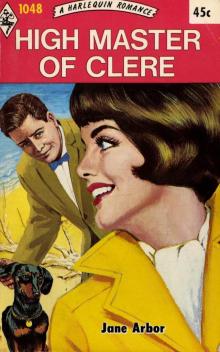 High Master of Clere
High Master of Clere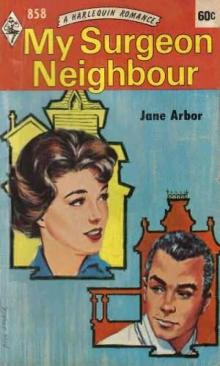 My Surgeon Neighbour
My Surgeon Neighbour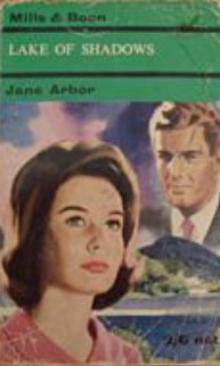 Lake of Shadows
Lake of Shadows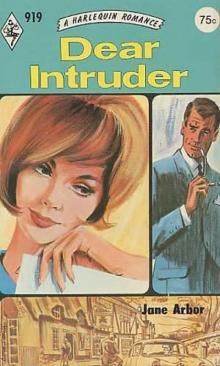 Dear Intruder
Dear Intruder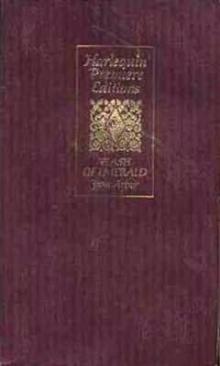 Flash of Emerald
Flash of Emerald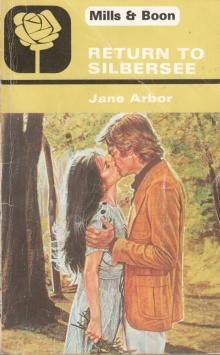 Return to Silbersee
Return to Silbersee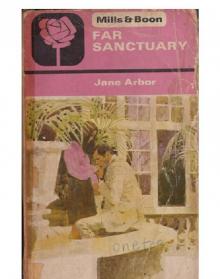 Far Sanctuary
Far Sanctuary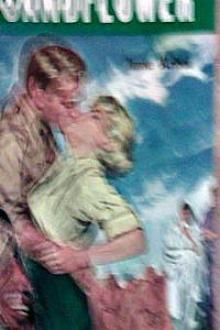 Sandflower
Sandflower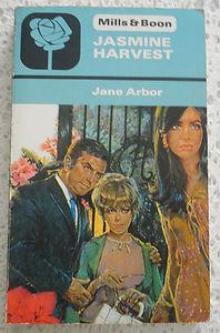 Jasmine Harvest
Jasmine Harvest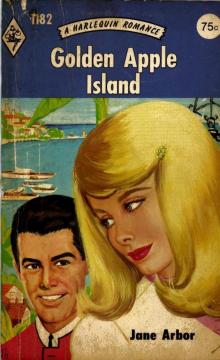 Golden Apple Island
Golden Apple Island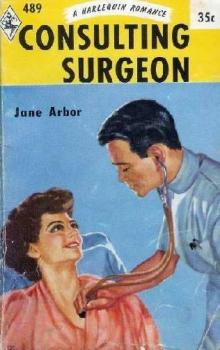 Consulting Surgeon
Consulting Surgeon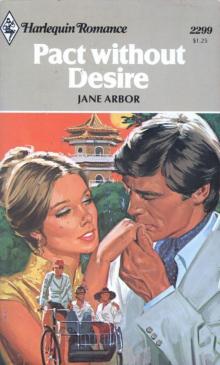 Pact without desire
Pact without desire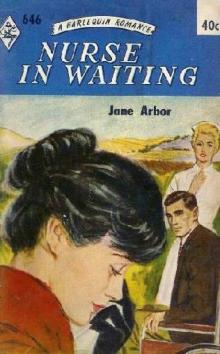 Nurse in Waiting
Nurse in Waiting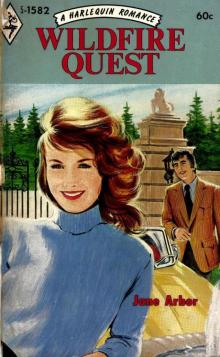 Wildfire Quest
Wildfire Quest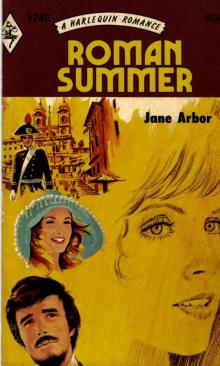 Roman Summer
Roman Summer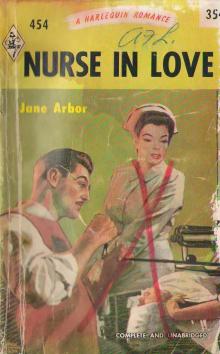 Nurse in Love
Nurse in Love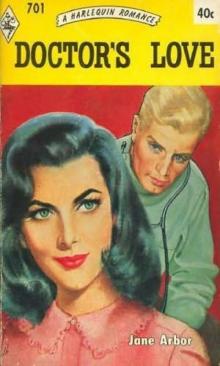 Doctor's Love
Doctor's Love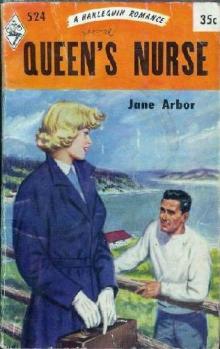 Queen's Nurse
Queen's Nurse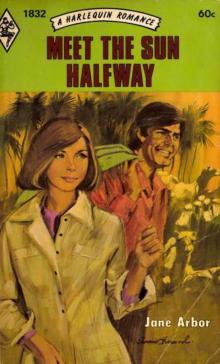 Meet the Sun Halfway
Meet the Sun Halfway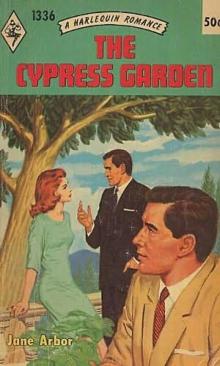 The Cypress Garden
The Cypress Garden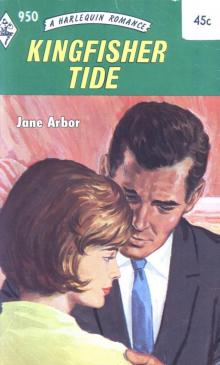 Kingfisher Tide
Kingfisher Tide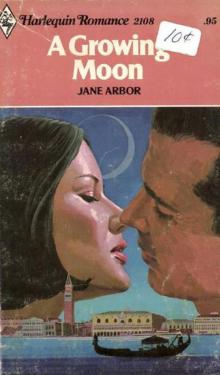 A Growing Moon
A Growing Moon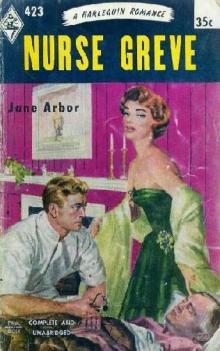 Nurse Greve
Nurse Greve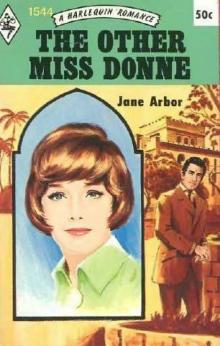 The Other Miss Donne
The Other Miss Donne